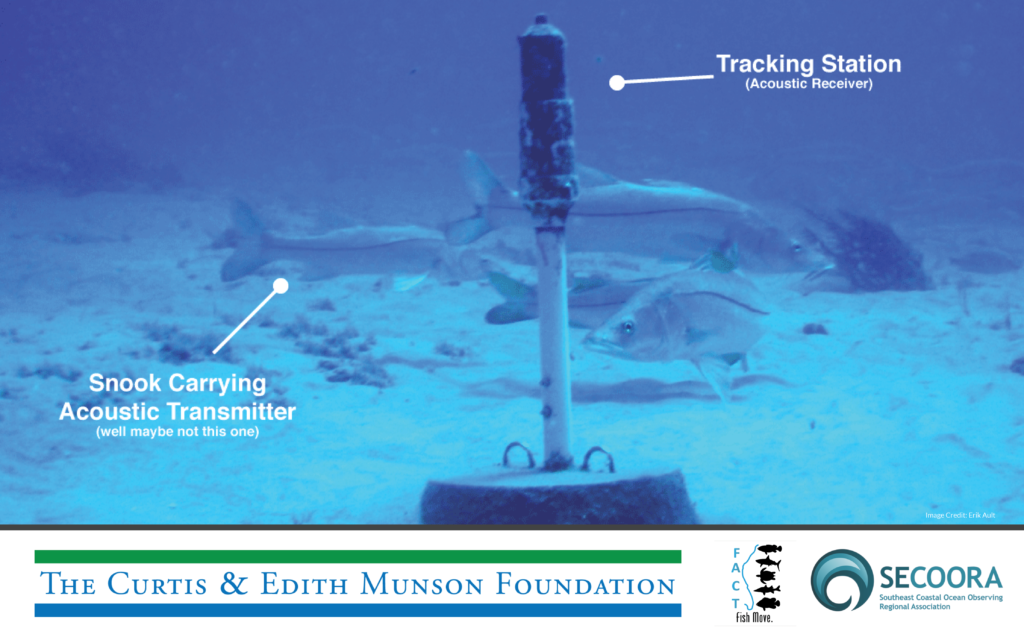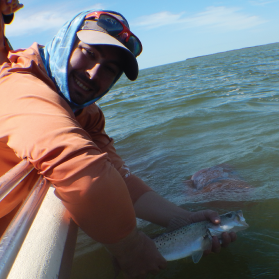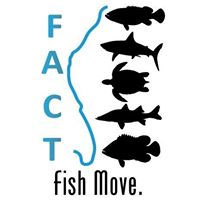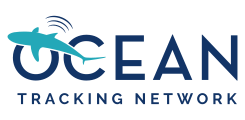
Project Overview
In South Florida, scientists are using acoustic telemetry to track the movements of important marine species such as sea turtles, tarpon, permit, sawfish, cobia, and nurse sharks. Tracking is conducted by implanting or attaching acoustic tags to the animal and then stationary underwater devices called receivers record information from the acoustic tag when the animal swims within range of the receiver. These receivers are found in coastal waters throughout South Florida from Biscayne Bay down to the Florida Keys and into the Everglades. Receiver data allows researchers to determine how animals use their environment, including seasonal use of habitats and migration patterns. However, to better understand how climate may impact animal movements, researchers need to deploy temperature loggers at receiver locations. Funding from the Curtis and Edith Munson Foundation is allowing SECOORA to purchase 3 new receivers and 30 water temperature loggers which FACT Network members will deploy.
The Curtis and Edith Munson Foundation provided $15,000 allowing SECOORA to purchase 3 new receivers and 30 water temperature loggers which FACT Network members will deploy.
Student Award

SECOORA raised another $12,800 to support a graduate student to research how marine resources in the Southeast are responding to increasing ocean temperatures. Congratulations to Jonathan Rodemann (pictured right) from Florida International University for being awarded the fisheries research grant. The project, Abiotic effects on movement of Spotted Seatrout and Grey Snapper in response to a seagrass die-off, will evaluate how habitat disturbances are affecting recreationally important fish species communities in north central Florida Bay.
The funding for this award is provided through the generosity of our donors, The Curtis and Edith Munson Foundation, Ocean Tracking Network, Innovasea, the SECOORA Education and Outreach Committee, and many individual donors.
Why This Matters
Understanding how water temperature influences the movements of fish and turtles is critical for effective protection and management of our aquatic resources. The simultaneous collection of animal location and temperature data will be used in the development of predictive models of temperature dependent fish behavior, but can also be applied to model validation for hurricanes and coral reef response to water temperature. A graduate student will be selected to analyze the water temperature data and use the data, along with the tag data, to conduct their research.
Lead Organizations
Partners
Project Sponsors
Thank you to our sponsors!
Silver Sponsors
Supported By
Project Status
- Ongoing


